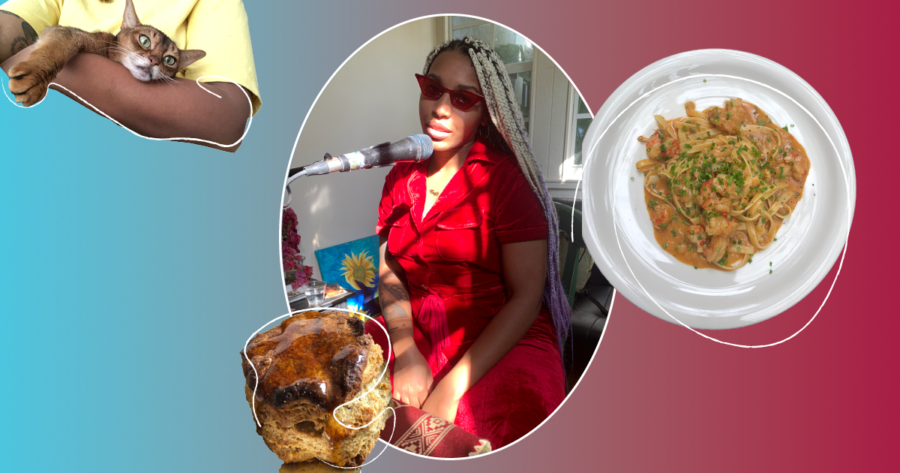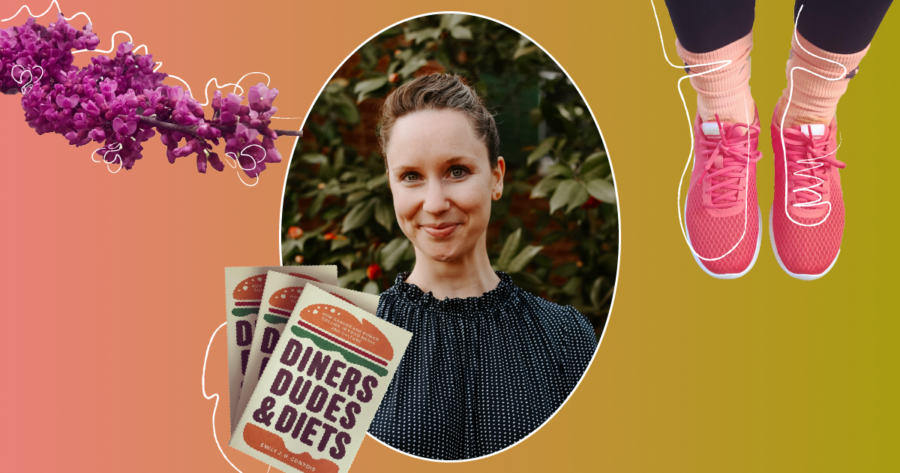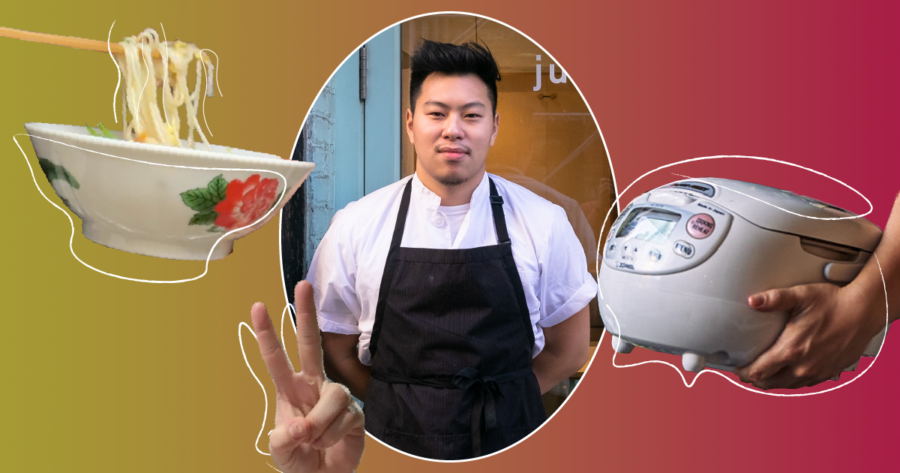INTERVIEW
Why Zoe Adjonyoh is Decolonizing Food
WORDS BY SARAH COOKE
PHOTOS BY LATEEF OKUNNU
GRAPHICS BY CLARE LAGOMARSINO
JANUARY 28, 2021
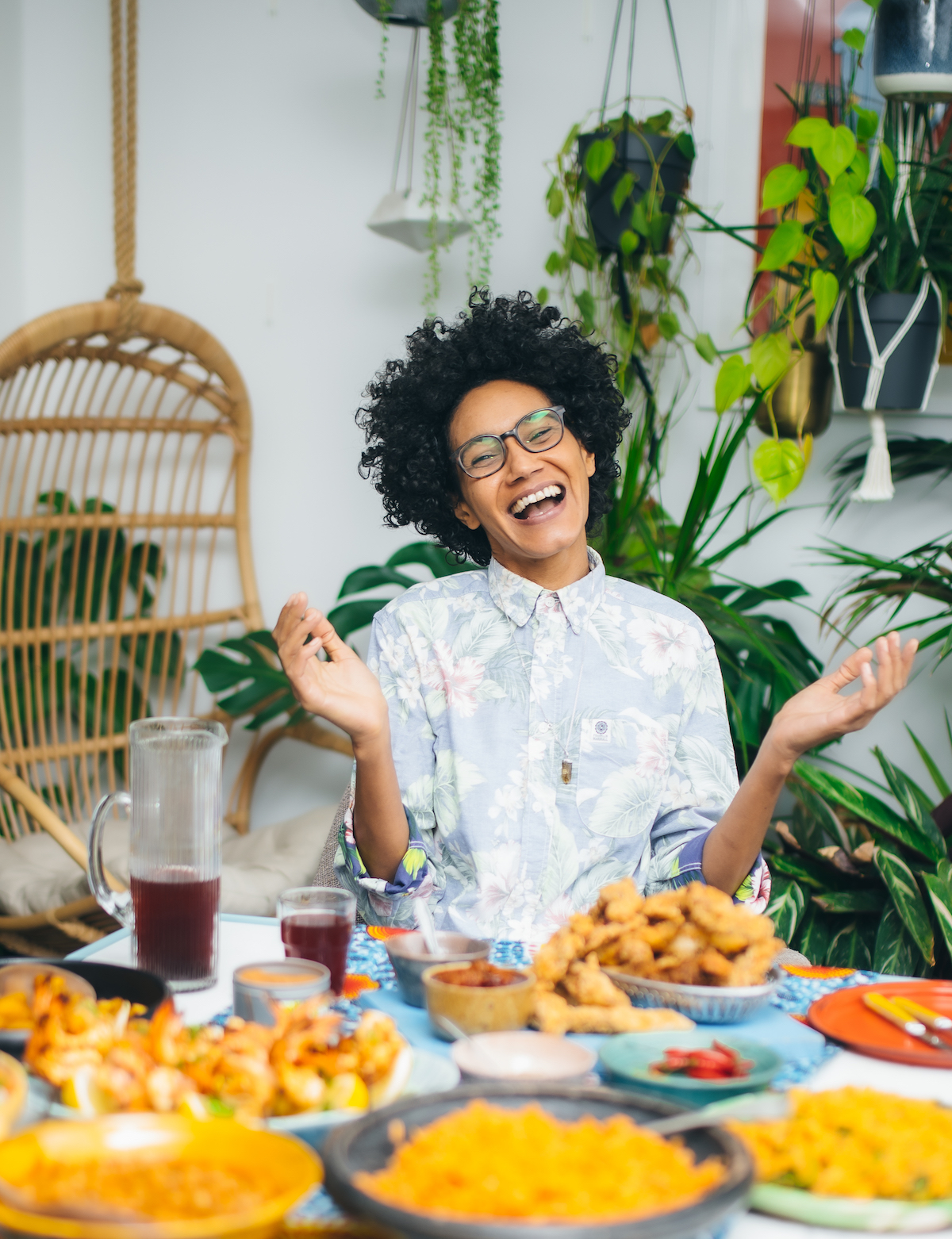
Zoe Adjonyoh is a writer, chef and food justice activist from South-East London. From Russia to Berlin and New York, Zoe has become a leading voice in championing the last frontier in Gastronomy: New African Cuisine. She is the founder of the pioneering contemporary West African Food business—Zoe’s Ghana Kitchen—which has been running its famous supper clubs and pop-up residencies for over ten years. She is the co-founder of Black Book, a platform for promoting diversity in the global food industry and hospitality.
Born to a Ghanaian father and Irish mother, Adjonyoh deepened her understanding of West African cuisine after a trip to visit her extended family in Ghana, where she travelled and explored the kitchens and markets across the country, and met with cooks who shared their knowledge and traditional recipes for Zoe to re-imagine back in London. Zoe completed her MA in Creative & Life Writing at Goldsmith’s University in 2014 and is currently writing her memoir instated at Goldsmiths.
Her cookbook, Zoe's Ghana Kitchen: An Introduction to New African Cuisine - from Ghana With Love (first published in 2017) will be re-released on February 4, 2021 and is available for pre-order now.
This interview, held on November 27, 2020, has been edited and condensed for clarity.
Sarah: What has this year been like for you? What’s in your world currently, and what do you hope is in your future?
Zoe: For most people, I’m sure it’s been a rollercoaster, but on balance, I’d say 2020 has been quite kind for me overall. It’s been a process of personal transformation, business transformation, purpose transformation.
I managed to fit in a couple supper clubs before the UK went into lockdown, and then in the space of a week, it became very apparent that my business, Zoe’s Ghana Kitchen, might not survive what was about to happen, and that I wasn’t going to get any government funding as a micro business.
At the same time, my dad, who is mentally ill, saw his care came into a little bit of a crisis. The synchronicity of it was that all of this was happening during the pandemic, where all around the world there was a beautiful global consciousness around supporting each other and communities coming together. Witnessing that, my solution was to launch a community kitchen crowdfunder so that I could help vulnerable people in my neighborhood and my borough, and then also use that income to pay the rent for business for the next three months.
Other things were going on at the time: I just went into recovery; I’m sober now, so I was sober during COVID. I’ve also been going through this journey of deep spirituality and getting back in tune with myself and my vision and my purpose. So, all of those things have been really positive—building strength internally, mentally, and mindset positivity.
While Zoe’s Ghana Kitchen had to transform the nature of what it does, it was going in a direction I wanted to go anyway, which was serving this higher purpose of decolonizing the food industry in a more tangible way and having conversation with the customer directly.
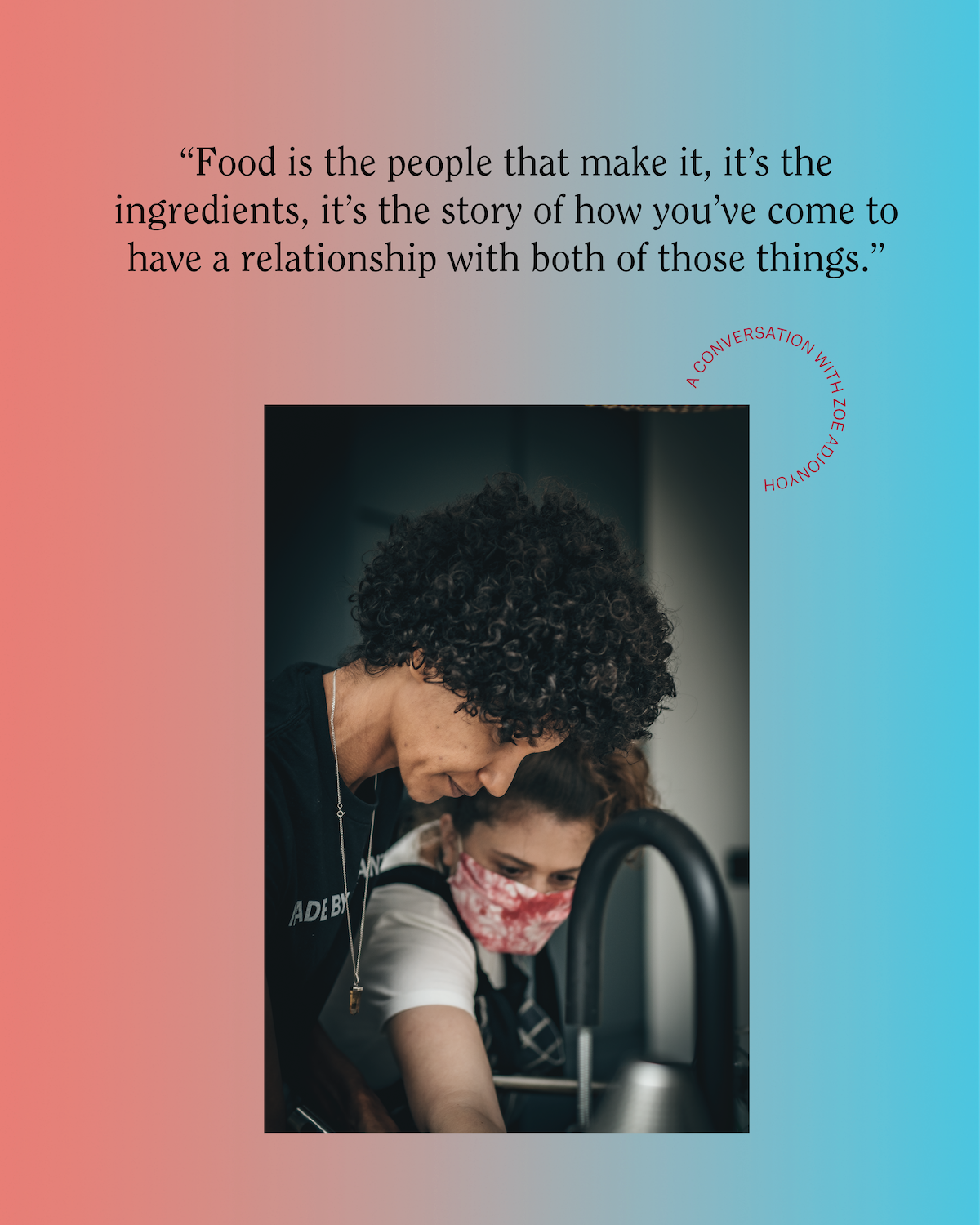
I started Black Book as well during that period, and I was hosting lots and lots and lots of things on IG and Zoom. I realized again how much I love hosting things and sharing stories. I’m trying to build that now into my future whether it’s part of my career or not. It’s certainly something I really enjoy doing: connecting people, connecting communities, having conversations that people might otherwise not have.
Ghana Kitchen’s transformed from a catering business to an online shop, Black Book’s been established as a platform for creating and promoting diversity in the food industry, and then I’m launching a new brand next year. It’s linking together health, wellness, and a little bit of politics that’s digestible for people as much as I can contain myself.
That’s the future, really: being more directed in my goals and all my goals serving one purpose, which is decolonizing the food industry ultimately.
Thinking about Black Book, I wanted to talk about the video of Angela Davis that’s on the website homepage. It’s an incredible speech to watch and sit with. Why that video, and why Angela Davis, as the welcome into Black Book and setting the conversation for Black Book?
I wish I could say it was a really thought-out decision. [Zoe laughs.] Much of my decisions are instinctual and intuitive, and I just follow them.
We launched a webinar series, where we were discussing some of what we considered to be the key concerns of the industry among participants who are not white. That wasn’t meant to launch Black Book as a company, and it wasn’t reactive to BLM; it was all stuff that was already happening. But because the industry responded to that series so well, then people started to talk about it, and usually, that happens before you get a chance to tell people what it is. Suddenly, it’s “Black Book has launched!” when we didn’t launch anything apart from a webinar. [Zoe and Sarah laugh.]
We very quickly needed to set up a website and give people an idea of what we wanted to do and where we were going. This is how basic this decision was, to be honest: We’d been recording the series, but we couldn’t afford to get it edited, so we couldn’t upload any of the content yet. In the absence of our own content being ready, I wanted to put something out that would speak to what Black Book’s fundamental beliefs were. Angela Davis is obviously a hugely inspirational figure when it comes to these kinds of conversations around anti-racism and diversity.
For me, Angela Davis is the figurehead of all the pillars that stand behind Black Book: visibility, equality, wealth creation, equity. And I felt like that speech in particular, and also her attitude when she delivers it—there’s a bit of attitude to what we’re doing, in that it’s not responsive. Black Book isn’t reactionary. It’s well-considered, thought-out opinions from personal experience and research.
There is a point, I think, at which you have to move the conversation forward with some energy. I had become quite tired of this type of conversation in the UK industry, anyway, always being skirted around and alluded to, without the depth and breadth of the problem ever really having teeth dug into it.
And that’s why I chose to host that series, because I knew I wouldn’t have any qualms about being direct and honest or concerned about what job opportunities I might lose as a result of speaking my mind. Angela Davis embodies that. It’s like trying to give people guidance and help and assistance, but also doing that in a way that isn’t pandering or cow-towing. Just being direct and bringing energy and attitude with that directness that says, “This is actually enough now, we’re kind of done sucking up this bullshit.” [Zoe and Sarah laugh.]
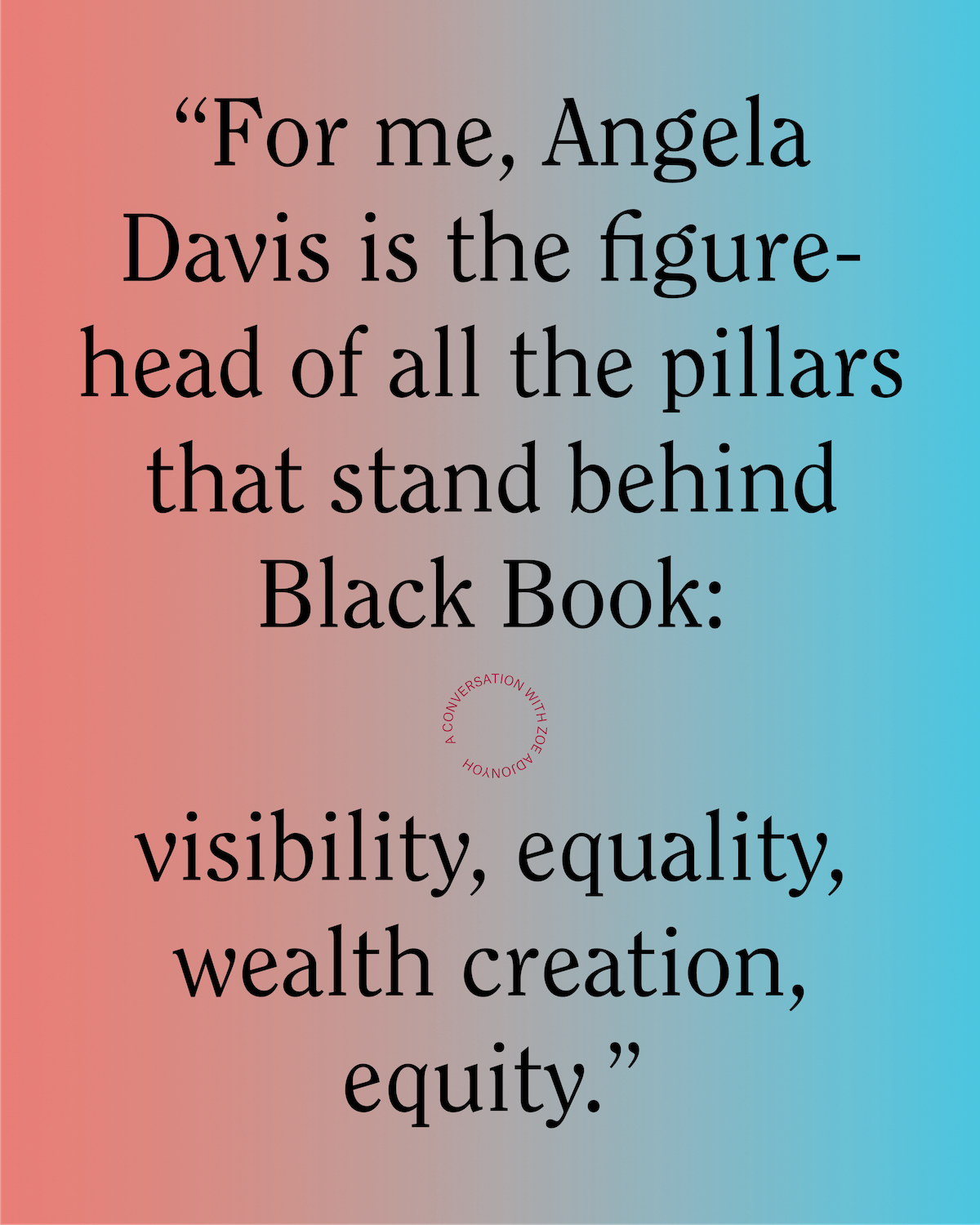
The way that she carries herself—I mean, it’s incredible. As you said, it’s that perfect, perfect blend of care without pandering, and meeting people at their highest level.
You mentioned launching the spice shop and thinking about that in the vein of Diaspora Co. and what Sana Javeri Kadri has done with it. Have you two had a brainstorming session or something like that?
I would love to have a brainstorm with her. I actually had heard of Diaspora Co., because I’d seen pictures on my Instagram of this beautiful cardamom, but I didn’t really know much about what was behind it.
The idea for transforming Ghana Kitchen into this type of shop has been on my mind for some time, but the economic dynamics that COVID brought made me fast forward the energy and necessity with which I had to do that. I was writing the mission statement for the shop, and I was like, “Am I being too activist?” because sometimes, your politics can put off a potential customer or a potential client. But I really wanted to have upfront the mission behind what we wanted to do.
I’m not sure what little synchronous magic moment happened, but again, probably my intuition wins. [Zoe and Sarah laugh.] I went back to Diaspora Co. and saw what she had written on the homepage and thought, “Oh my God, this is exactly what I want to say! She’s written my homepage!” I was so excited to see how she built that out—it was literally the first time in my career in food where I’d seen somebody doing something exactly the way I wanted to do it.
I got in touch with her and explained that I’m turning Ghana Kitchen into a spice shop with the same kind of mission. She was very open and generous, so I sent back the revised copy which included a quote from her website—“The future of food is led by BIPOC, is equitable AF and decolonising every step of the way. Get on board.”—and she was happy for me to use it.
I definitely envision more collaboration between us going forward in the coming years, because there’s so much synergy between how we think and how we want to do business and the relationship we want to build between customers and producers, and the information we want to exchange about those relationships as well.
I think increasingly for me, I’m just more concerned to work with and be amongst people who have this higher vision for the planet and have this higher purpose, and are willing to really get their customers to engage with that notion and educate them, and if necessary handhold them a little bit. For me now, it’s all about vision and purpose, and only working with people who get that and want to support that. She’s a great example. My hat’s off to her.
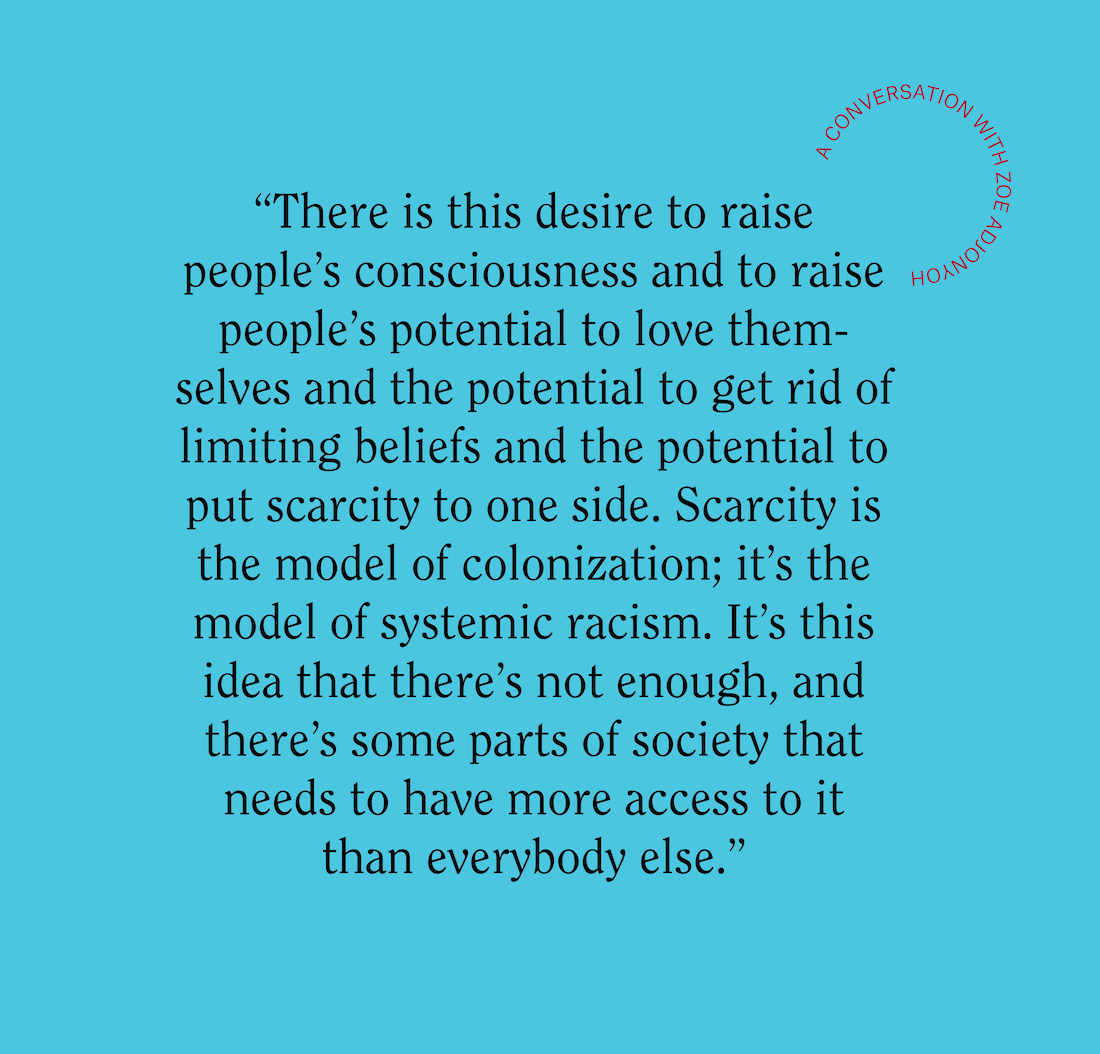
How does your background as a writer inform your approach to food and your philosophy about it? I read that you were doing an MA in Creative Writing while Zoe Ghana’s Kitchen was kicking off.
You know, it’s curious to call myself a writer when I’m not writing that much, isn’t it? The only reason I can call myself an author is because I have a cookbook. It’s so funny, isn’t it, the hands that life deals you. [Zoe and Sarah laugh.] I never imagined the cookbook would be the first book I published, but there you are.
Writing is not the only tool for storytelling, as you know, so it’s more about storytelling than it is specifically writing. I come from two very long lines of storytelling cultures, being half-Irish and half-Ghanaian, so I think it’s built into me. I’ve always been known for telling a good yarn, telling a good story; I’ve always been a person who can, on their feet, form an argument or entertain through a story. Eventually, when I got the confidence, that translated into writing.
I think most cooks, and some chefs, are concerned to—I nearly said sell a story [Sarah laughs], but it’s almost true: tell a story or sell a story through the plate. Because there are so many journeys that happen. Food is the people that make it, it’s the ingredients, it’s the story of how you’ve come to have a relationship with both of those things.
All of the things that have happened to you and you have experienced—you can’t extricate any of it from the creative process. Storytelling is intrinsic to who I am, whether that’s oral or in writing or in cooking; in the same way that I can’t extricate politics from my identity, I can’t extricate storytelling from my cooking. There is no food without the story behind it, for me.
I think that at its best, food really asks us to be thoughtful, intentional people, and I don’t think there are other avenues that ask us to do that as immediately or as intimately.
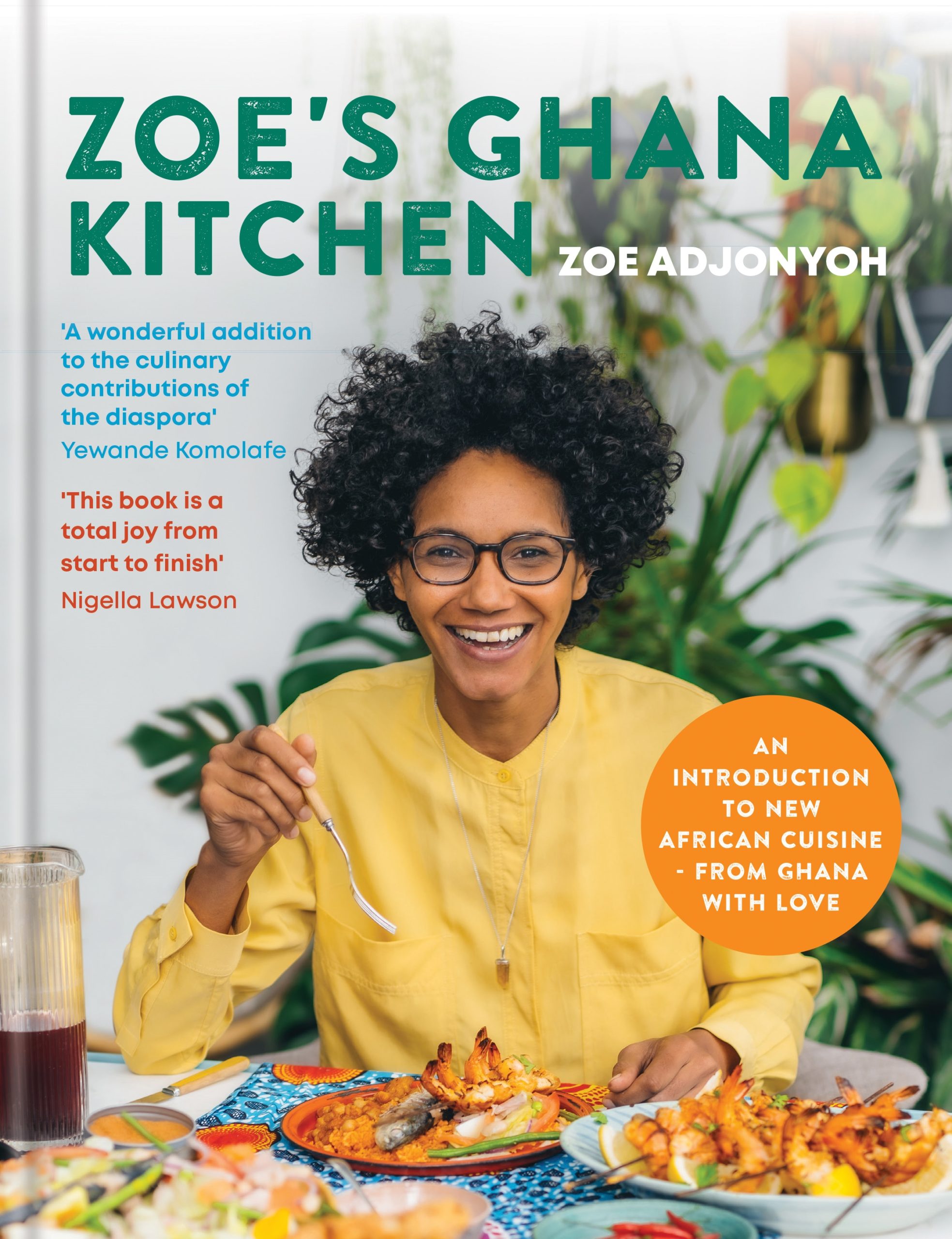
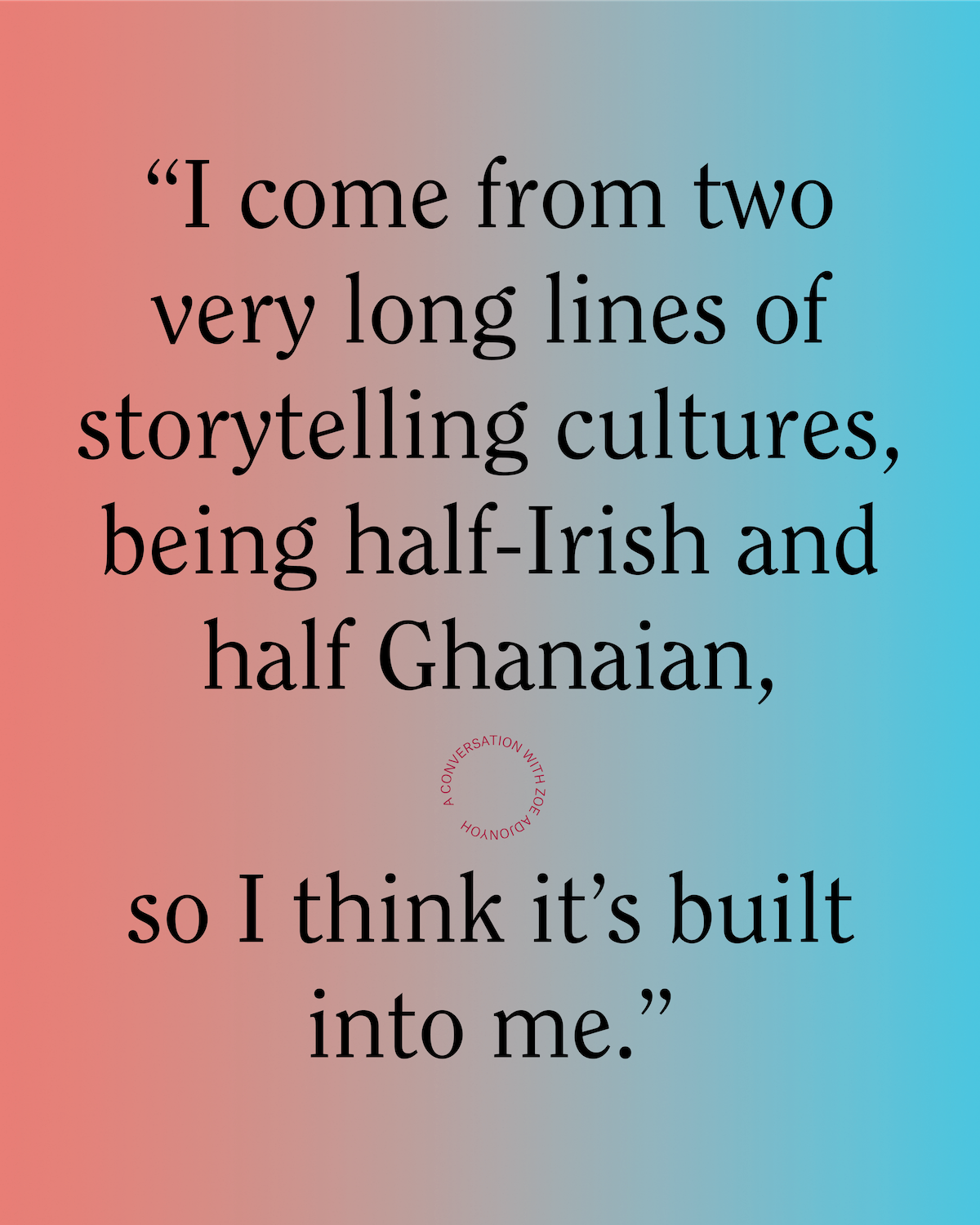
You mentioned in an interview with Buzzfeed that your cookbook feels very dated for you. Who would you say you were when you wrote that cookbook, and what would you say to her now?
Oh, wow. Who was I then...You’re not charging by the hour, are you? Cause I haven’t spoken to my therapist. [Sarah laughs.]
I’ve been in therapy for over a decade. I do shit therapy to my friends, and they say, “Sarah, this is one of the reasons why you’re in therapy: So that you stop doing this.” [Zoe laughs.] And I’m like, “I know, I know, but it’s my go-to coping mechanism!”
In 2013, I was probably very confused. Do you know this quote by Marianne Williamson? “Our deepest fear is not that we are inadequate. Our deepest fear is that we are powerful beyond measure.” I actually don’t have a fear of failure. I feel like I’m really happy to keep failing and failing [Zoe and Sarah laugh.]. Fear of success is the big one for me. And I’m still working on that.
In 2013, while doing the MA, I decided to go back to Ghana and discover what relationships would be possible to have with my family there, who I hadn’t seen since I was a toddler, and at the same time use that as a trip to mine recipes. It was a very loaded trip, because I hadn’t been back there since I was very young. My parents were really poor, and they really couldn’t afford to raise me for a little while, so I spent some of my toddler times in Ghana.
Ghana Kitchen had taken off in this way that I could not have predicted or expected. It was really the opposite of what I thought I wanted to do, because I was still very much of the opinion that I was going to be the mixed-race version of Sontag. I had very lofty ideas of what my creative output was going to be in the world.
I was in the place of being a bit confused, because the universe had thrown me into this situation where I’d started a business I had no idea I was going to start, and I’d become a leading voice, and I was just having a relationship properly.
In 2013, I think that I wasn’t as strong in my purpose as I am now. I wasn’t as strong in my authenticity as I am now, or I’d somehow navigated away from that. I was on the edge of lots of amazing, great things, like a cookbook and potentially opening a restaurant in Brixton, and my attitude then as an entrepreneur was like, “Just say yes, do it and you’ll figure it out, just keep saying yes,” and that’s pretty much what I did for a while.
Without that strength of my own kind of sovereignty of opinion, sovereignty of purpose, and sovereignty of what I wanted to say and I do—I mean, it was there to some extent, but when you’re a one-woman band, which I was, and there’s the whole power and weight of an industry you’ve never had any kind of interaction with suddenly kind of at your feet? It was just a very weird, terrifying place to be. And I think what I did was compromise myself and my food and my purpose a little bit under the weight of the pressure of expectation, and under the weight of all of the things that suddenly were happening around me.
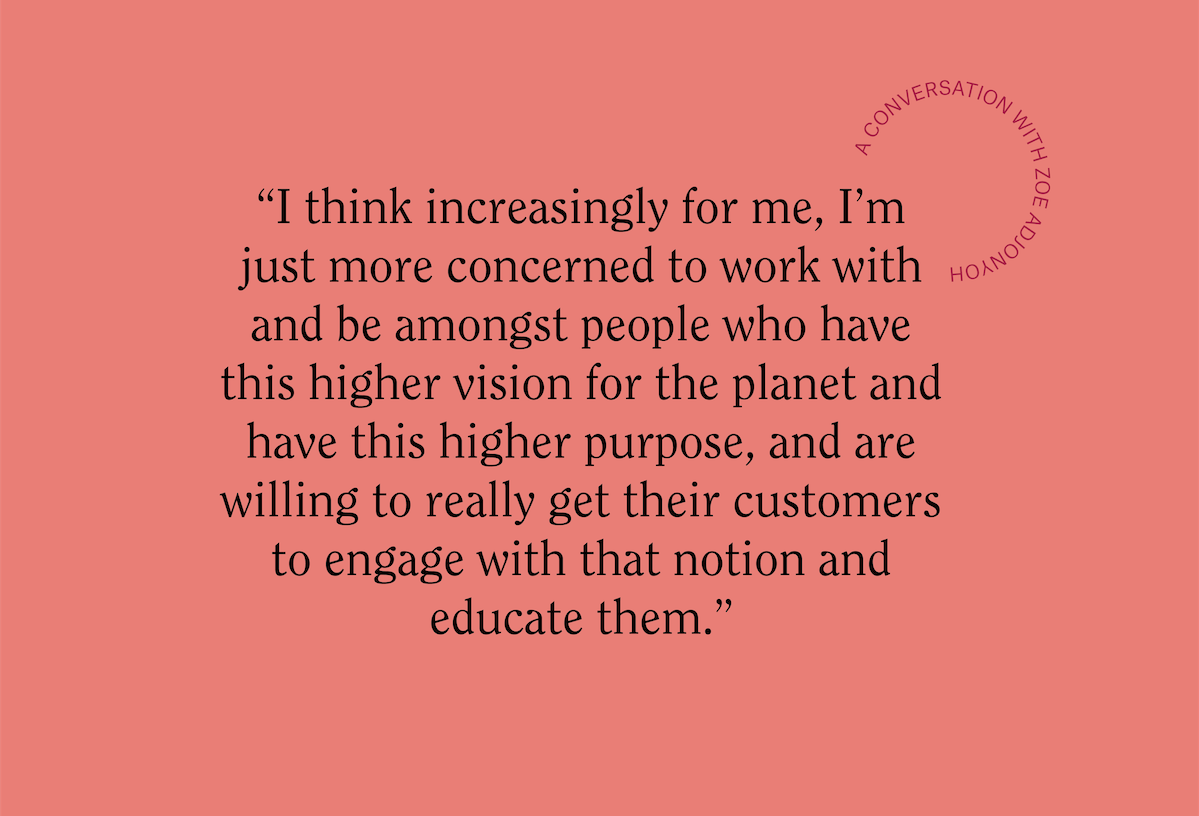
So what I would say is to that person is, “Well done, for making that trip to Ghana, which was very difficult for you to do, and you’ve grown, and you will continue to grow as a result of that. Try to remember to stay true to yourself and true to who you are, ‘cause you’re great.” [Zoe laughs.] That’s what I would say.
It’s just that thing of loving yourself and knowing that you’re enough and not constantly competing and comparing and letting all of that noise distract you, when actually you’re on a really good journey.
Do you feel like this year is one in which you feel really rooted in yourself and in your power?
Absolutely, yeah. And this is the gift of COVID: the space it created to have time to think. Because as anyone working in hospitality knows, it is a merciless game for very small margins and extremely long hours. I’d spent eight, nine years working seven days a week, working 14-16 hour days.
Even if I had a million ideas, which I do all the time [Zoe laughs], there was no space to reflect on whether they were good or whether they were going to go in the right direction. I stretched myself incredibly thin.
COVID took all of that pressure away. I couldn’t do any of those jobs, so I had all this gift of time. It coincided with me embarking on this deepend journey of getting back in touch with my own spirituality and my own personal development and growth. Getting a really solid foundation for my own practice everyday, which I do not deviate from now and which I have really hard boundaries around. That wouldn’t have come without COVID happening, to be quite honest.
I get up at 5AM every day now, and I meditate basically for an hour. I do my morning pages, manifestations, affirmations, gratitude lists, and I do an AA meeting at 8:00 every morning. Then I start my day. [Zoe laughs.] Without that practice as well, I’d probably be in a different place.
My last question is inspired by a brilliant lede in an article you wrote for Epicurious: “I don’t want to brag—that’s a lie, yes I do—but my pantry is bursting with amazing flavors and ingredients from West Africa.”
I think bragging, when it’s done right, is this form of kinetic, almost athletic pride. Right now, what’s something else you take pride in?
You know what? People think this is a bit cheesy, but right now, what I’m feeling really proud about is my marriage. We’ve had a really difficult three years, because my wife is American and I’m British, and we’ve never been able to spend more than six months at a time on the same continent for the last few years. Sara is just such a force. I feel so lucky and proud to have this woman in my corner, on my side, and also in love with me. It’s like, “Wow.” [Sarah and Zoe laugh.] I really lucked out. I’m just proud that we’ve made it this far, with all of the troubles that we’ve endured. I feel good about that.
And next year, I feel proud about this project that I’m being really elusive about—but the next business I launch, I think, has the potential to really do some interesting work in the space of educating people around what is possible and what is available, getting people to engage in an abundance mindset.
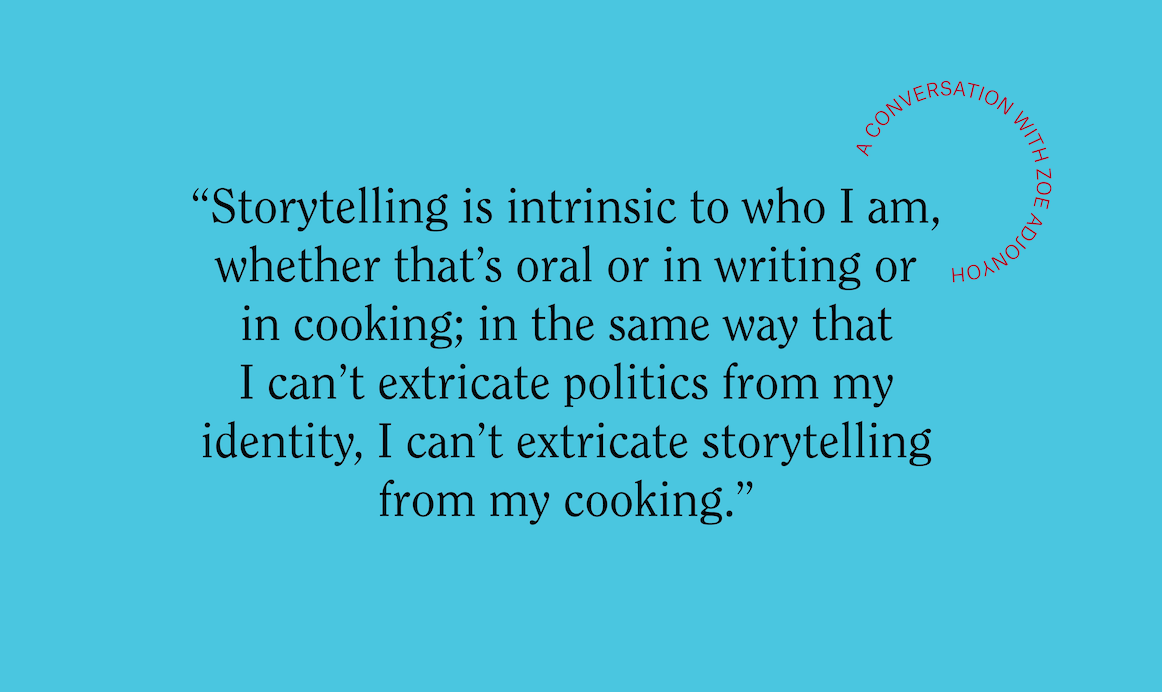
The other thing that’s behind what I want to talk about decolonizing the food industry has a political thread and a more spiritual side: There is this desire to raise people’s consciousness and to raise people’s potential to love themselves and the potential to get rid of limiting beliefs and the potential to put scarcity to one side. Scarcity is the model of colonization; it’s the model of systemic racism. It’s this idea that there’s not enough, and there’s some parts of society that needs to have more access to it than everybody else.
I’m proud of what that’s going to become. It’s a big vision. It’s basically African Whole Foods meets African Goop, essentially [Sarah laughs]. Don’t let that put you off. [Zoe laughs.] It’s this merging of health and wellness through an African lens, essentially, and just being like, “You know the West, you know the East, now meet Africa, which is actually the heart of what is good and healthy and abundant in the world and the universe.” Trying to bring wealth back to Africa, trying to raise people’s consciousness. I’m proud of what that brand stands for and what I hope it can achieve.
Sign up for Currantly, our newsletter delivering original food stories and news analysis, with surprise treats of freshly curated recipes and product drops. Think of it as your monthlyish digest to deepen your stance on food issues and be creatively inspired.
Sarah Cooke is a freelance writer and reporter based in Washington, D.C. Her reporting, which explores the intersection of food, culture, and power, has appeared in DCist, Eater DC, and Washington City Paper.
Sign up for Currantly, our monthlyish newsletter delivering original food stories and news analysis, plus fresh curations of recipes and product drops.
